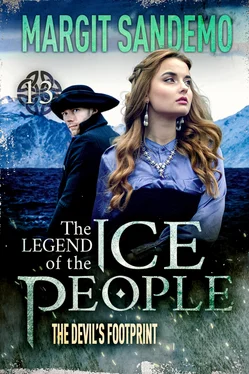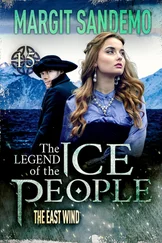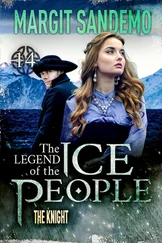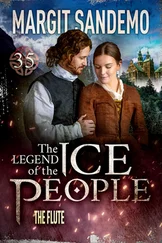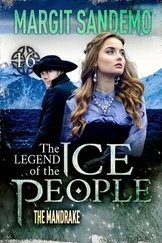Occasionally, the creature would be gone for a long time, vanishing into thin air, and people would heave a sigh of relief. But then suddenly the footprints would appear again.
It would seem that he was extremely strong. The manner in which his various victims met their ends varied greatly. Sometimes a death was unfathomable, and now and then he was bound to be blamed for things he hadn’t done. A scapegoat could come in handy when, say, sheep disappeared while they were grazing. Then people would become hysterical and rage about a grizzly bear or a wolf. Or maybe you had accidentally killed a neighbour in a dispute about a field boundary: you could say it was all because the beast had been on the prowl ...
However, everybody could tell that there was an evil being living hidden in their midst.
Finally the rumours reached Graastensholm. But Niklas, who was now running the large estate, didn’t spare them a thought. You heard this kind of superstitious nonsense all the time.
Big changes had taken place on the farms in recent years.
Niklas’s father, Andreas, continued to manage Linden Avenue. But Eli had gone and old Brand had been caught in a winter storm, fighting consumption until eventually he had to give up. Mattias at Graastensholm had also become a widower. It was the usual thing – the Ice People were a tough race and therefore doomed to live alone in old age. But Mattias was absolutely delighted that his daughter, Irmelin, and his son-in-law had chosen to live with him, because he had never been cut out for working on the farm. And as long as Andreas ran Linden Avenue, everything was fine. Kaleb was an exception to the rule that only the Ice People lived long lives. He and Gabriella were alone at Elistrand once Villemo had moved to Sweden with her small family.
The clan had held a formal meeting at which they had discussed the future. There were no heirs to two of the farms. So they reached the decision that Alv, the son of Irmelin and Niklas, would end up being a rich man. He was to take over Graastensholm and Linden Avenue and he was to administer Elistrand for Villemo’s son, Tengel, while the latter was in Sweden. All this would, of course, not happen until the older generation retired.
Mikael in Sweden had also become a widower. Of course, he grieved for his Anette, but he got along splendidly with his son, Dominic, and daughter-in-law, Villemo, and not least his grandson, Tengel III. They had become a close-knit family now that the neurotic Anette’s admonitions had died away.
Matters were considerably worse in Denmark. While Lene was happy with her Örjan and daughter in Scania, at Gabrielshus Tristan walked about like a restless soul, alone in the frighteningly empty rooms. Cecilie had finally succumbed at the age of 90. To everybody’s despair, Tancred, always happy and witty, had lost his life in the Scanian War, and his wife, Jessica, had died during an epidemic.
Tristan was the only one left and it didn’t seem like he planned to get married. What was the point of that, anyway? He couldn’t have children and he wasn’t suited for marriage. Tristan .... His name meant “born to sorrow”: never had a name been more appropriate!
There was another large estate without an heir here, for Lene’s daughter, Christiana, had her father’s house in Scania, which was enough for her.
Two clans were heading for extinction: the Meiden clan would die out with Mattias and the Paladin clan with Tristan. The fact that the newly coined family name, Elistrand, would also disappear with Kaleb and Gabriella might be less tragic. Paladin was the oldest and proudest name, and Tristan was pleased that Grandpa Alexander wouldn’t be there to see how things were going to turn out for his old family name.
Mikael, who was now head of the Ice People, was extremely concerned about the state of affairs. The new generation had only three members: Alv, Christiana and Tengel III. He hoped they would marry and have a great many children. But this was probably asking too much of the descendants of the Ice People, who never had large families.
Nobody was bothered by rumours of a peculiar, invisible being somewhere in Norway.
Not until something very odd occurred. It galvanized the entire race of the Ice People, leaving them frightened, confused, incredulous.
The creature was seen for the first time in the year of Our Lord 1695.
One blue moonlit night somewhere north of Christiania a notorious drunkard rolled home from the inn. Halfway home he fell in the ditch and landed among oxeye daisies and bluebells, where he fell asleep.
He was in a miserable state when he woke up. He thought that life was a bad thing altogether and his own life was far more miserable than everybody else’s.
“To hell with it all,” he drawled angrily. “May the Devil take it all!”
Then he heard steps.
Strange, uneven steps. Thump-drag, thump-drag ...
The drunkard felt that he was just beginning to sober up again. His heart started to pound but he wasn’t yet quite clear about the situation. His intoxication still lay like a veil between him and the surrounding world.
“Here he comes, him with the hoof, to fetch me,” he thought, half scared, half bleakly humorous.
Invoking him was dangerous, that was something they had always said at home.
He struggled to open his eyes. He saw a foggy moon up over the mountain ridge where the road disappeared.
That was where the steps came from.
The drunkard blinked to try to see more clearly. He shook his head, but stopped immediately as a wave of nausea hit him.
There was something there. Something big, something huge that was coming up over the mountain ridge and down towards him ...
He crouched in the ditch, trying to make himself invisible.
“I’ll never touch the bottle again,” he thought. “Dear Jesus, if you preserve me now, I promise to keep to the straight and narrow from now on. I do, I do ...”
His prayer wasn’t answered. Maybe it was too late for him to promise to mend his ways. “It” had stopped up on the mountain ridge. There it stood, slowly turning its head back and forth, as if it was scenting something nearby. The man in the ditch stared dumbfounded at the creature, his teeth rattling, and a small, frightened, trembling sound could be heard coming from him.
The creature’s eyes began to glow. It stood stock-still for a moment and then the uneven steps were heard again, approaching nearer and faster than seemed possible.
The terrible creature bent down over him. It seemed to hide the moon and the entire firmament.
The man in the ditch yelled helplessly.
They found him the next morning. The pathetic remains of a human being. With eyes that stared up at them as if terrified, petrified; rusty, strained breathing; making miserable attempts to say something ...
He lived just long enough to be able to speak about what he had seen. If you could call it speaking ... They had to force the words out of him and in between he would scream pathetically when he was reminded of the terrible moment when the creature had bent over him.
He gave the first testimony about who had left the strange footprints on the ground. As he heaved his last sigh, still lying miserably in the ditch, the men rose and looked at one another, silent, sceptical and stunned.
They gazed at the dead drunkard. He was not a sight to forget. Torn, bruised – and with horrific marks on his throat from something that most resembled a huge hand with claws.
What were they to believe?
It was a while before they could bring themselves to report what they had heard. It seemed as if they were afraid of being laughed at.
But then the rumour spread like wildfire, and since the threat was no longer so distant from Graastensholm, it wasn’t long before the clan met at Linden Avenue to discuss it.
Читать дальше
